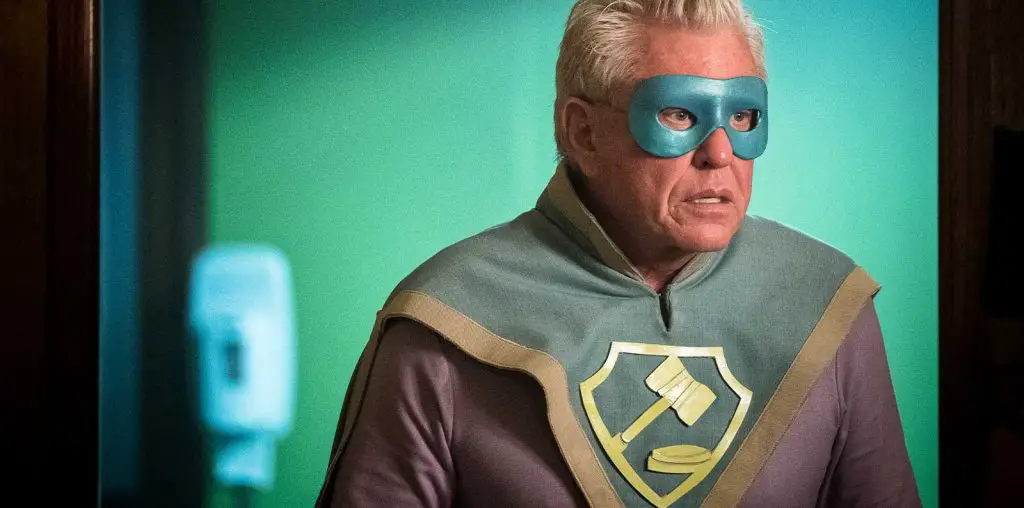
Professional football is a huge industry in the United States (“American” football, to differentiate from the other, inferior version), generating billions of dollars a year in merchandising and ad revenue. Each of the NFL’s 32 teams has legions of devoted fans that are always prepared to throw a punch or set a car on fire to prove their devotion. Finally, in an era when few TV shows can draw large audiences, the Super Bowl is consistently the highest rated television event of the year. It’s the most popular sport in this country,
That wasn’t always the case, of course. “Leatherheads,” George Clooney’s third foray behind the camera, presents a slightly off center version of modern football’s birth. The year is 1925, and while college football draws weekly crowds numbering in the thousands – especially Princeton with their star player and ex-war hero Carter “The Bullet” Rutherford (John Krasinski) – many professional teams are folding up due to poor ticket sales. The latest to fold are the Duluth Bulldogs, leaving 40-something captain Jimmy “Dodge” Connolly (George Clooney) wondering what to make of himself now that he has to seek honest employment.
Realizing the working world isn’t for him, Connolly hits upon the idea of getting Rutherford to join the league. The lad is a far cry from the misshapen lumps currently inhabiting the pro ranks, after all (never mind Connolly himself, who is remarkably toothed and unscarred for someone in their 20th facemask-less year of gridiron action). The veteran is betting that the young man’s good looks and superior skills will translate to record-setting attendance. However, this new enterprise is also being observed by nosy reporter Lexie Littleton (Renée Zellweger), who’s determined to sniff out the truth behind golden boy Rutherford’s alleged heroics.
Clooney and company have two aims here. The first is to revisit the classic screwball comedies of the ‘30s and ‘40s like “His Girl Friday” and “It Happened One Night,” the second is reminding us of a simpler time when professional sports contained an element of the unexpected; when rules and regulations were scoffed at, before government interference and big business ruined all the fun.
The first objective is met with little difficulty, which isn’t that surprising. Goofy romantic comedies never went away, though “Leatherheads” is more successful than most, thanks to a clever script and also because the setting itself evokes the classic era of Frank Capra and Preston Sturges. Clooney mugs appropriately when required, and while Zellweger won’t make anyone forget Barbara Stanwyck, she’s at least believable as the dame with moxie trying to make it in a man’s world. The chemistry between the two is mostly convincing, and they play off each other with ease. Clooney avoids painting in overly broad strokes, keeping his leads human in the midst of all the slapstick (especially Krasinski, who portrays Rutherford with far more empathy than one might expect).
It’s the bittersweet reminiscing about football’s salad days that doesn’t quite succeed. Near the end of the movie, when Clooney makes the mistake of ditching smart comedy for schmaltz, Connolly is seen as he ruefully walks through Duluth’s stadium, watching as now-familiar billboards are placed around his beloved field. Most of the companies have long since faded into oblivion, but it’s no coincidence that the sign Connolly lingers in front of, and the biggest one present, is for Coca-Cola. I guess the irony of mourning football’s – and America’s, lets not fool ourselves – lost innocence while giving a product placement shot to one of the biggest companies on the planet was lost on everyone.
“Leatherheads” is as trifling as Clooney’s second movie (“Good Night and Good Luck””) was significant, but that’s okay. It succeeds where so many other romantic comedies fail because of a superior script and because everyone involved has the good sense not to take themselves too seriously.
And it’s got football (the real kind).
